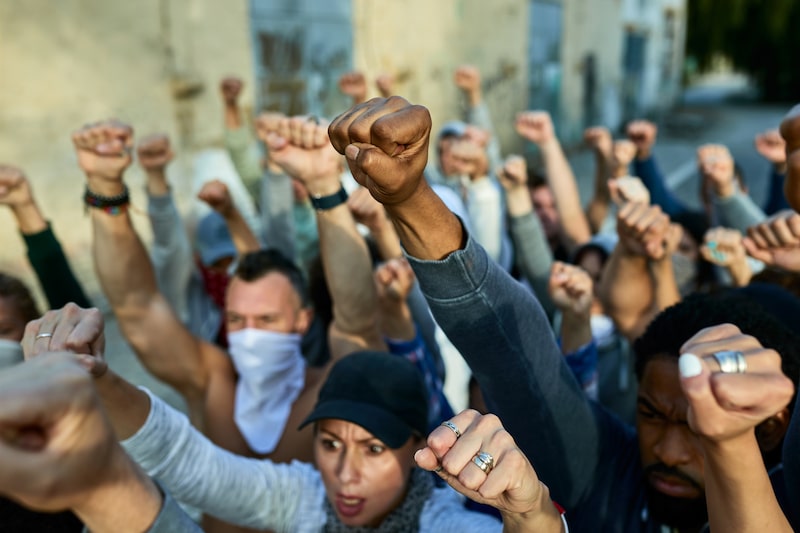Bloomberg Línea — The involvement of Latinos in mass shootings in the United States is on the rise. However, the reality is that Latino white supremacy, while seemingly a new phenomenon, has been going on for some years, according to an opinion piece in El Tiempo Latino.
As of May 2023, more than 17,000 people had been killed by firearms in the United States, and Latinos, who account for more than 60 million individuals in the country, are buying guns in increasing numbers. This has to do with factors such as extremism and fear, according to an interview conducted by The New Yorker.
Latinos have become embedded in and embraced American culture and politics, and including its most extreme and violent forms.
The ideology of white supremacy upholds the belief in the superiority of the white race over others in terms of intelligence, culture, achievement and ability to rule. Its adherents seek to maintain and promote white political, economic and social dominance over other races, considering them inferior or a threat.
It would seem to be a paradox that there are Latino citizens who adhere to this ideology, however, despite identifying as non-white. Nevertheless, there is a growing group of Latinos whose actions and affiliations support white supremacists.
Some Latinos have been described as seekers of “aspirational whiteness” or “multiracial whiteness,” concepts that help explain how Latinos can be both potential perpetrators and victims of the growing racial violence in the United States, argues the article in El Tiempo Latino.
Why do Latinos follow white supremacists?
Incidents of violence such as the 2019 shooting at a supermarket in El Paso, Texas, where 23 mostly Latinos were killed, caused an increase in gun purchases in that community. Something similar happened with the Covid-19 pandemic and associated fears of violent crime also contributed to Latinos arming themselves.
According to the National Shooting Sports Foundation, Latinos accounted for 49% of gun purchasers in the US in 2020, a trend sustained in 2021.
In Texas alone, there have been 21 mass shootings so far this year, leaving 34 people dead and 82 injured. In at least four of them, the shooters were Latinos.
During the 1970s and 1980s, anti-communist and anti-indigenous paramilitary groups such as the Right Wing Death Squad (RWDS) popped up in Central and South America. These groups have gained popularity among right-wing organizations in the United States, particularly the ultra-nationalist Proud Boys.
The Proud Boys are a far-right group founded in the United States in 2016 by Vice Media journalist Gavin McInnes. The Proud Boys call themselves a “Western fraternity” and promote conservative, nationalist and anti-progressive ideas and values.
Indeed, Cuban-American Enrique Tarrio, former leader of the Proud Boys, was convicted of seditious conspiracy for his role in the January 6, 2021 assault on the US Capitol.
Tarrio had already been sentenced to five months in jail for setting fire to a Black Lives Matter banner stolen from a historic Black church in Washington.
Activists and observers say these types of organizations have been looking to attract more followers, including Hispanics.
“There are people from almost every community who become attracted to misogynistic, aggressive, conspiratorial rhetoric, and then they become radicalized fairly quickly,” says Brian Levin, director of the Center for the Study of Hate and Extremism at California State University, San Bernardino.
A ase in point is what happened last May 6, when Mauricio Garcia, a 33-year-old Mexican-American, killed eight people at a shopping mall in Allen, Texas. According to investigators, on his social networks Garcia had used white supremacist, misogynistic and anti-Semitic rhetoric.
According to The Guardian, for people of Latino descent, the appeal of right-wing proto-fascist politics stems from a complex and contradictory mix of misinformation in Latino communities, the presence of authoritarian influences from their countries of origin, and a closeness to the idea of the “white race” in the United States that is based more on dominance over people than on skin color.
According to that worldview, violence is an appropriate political response to threats to that dominance.




